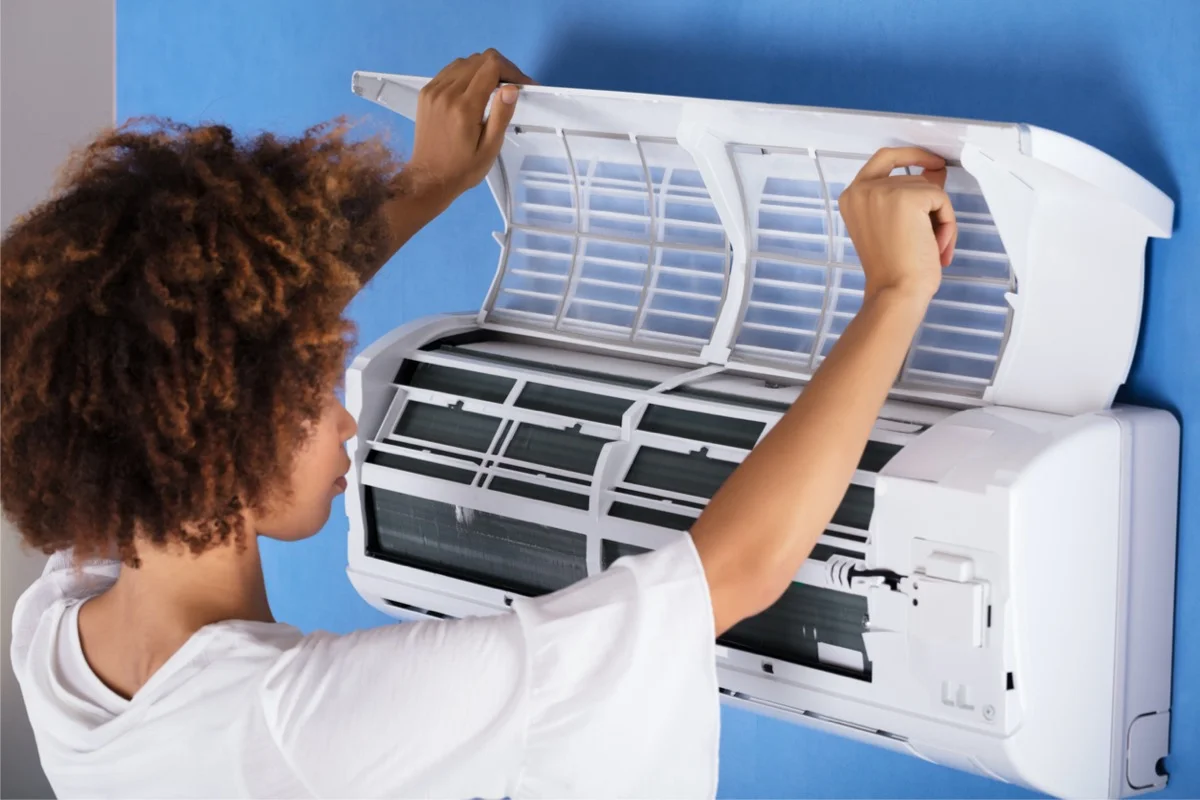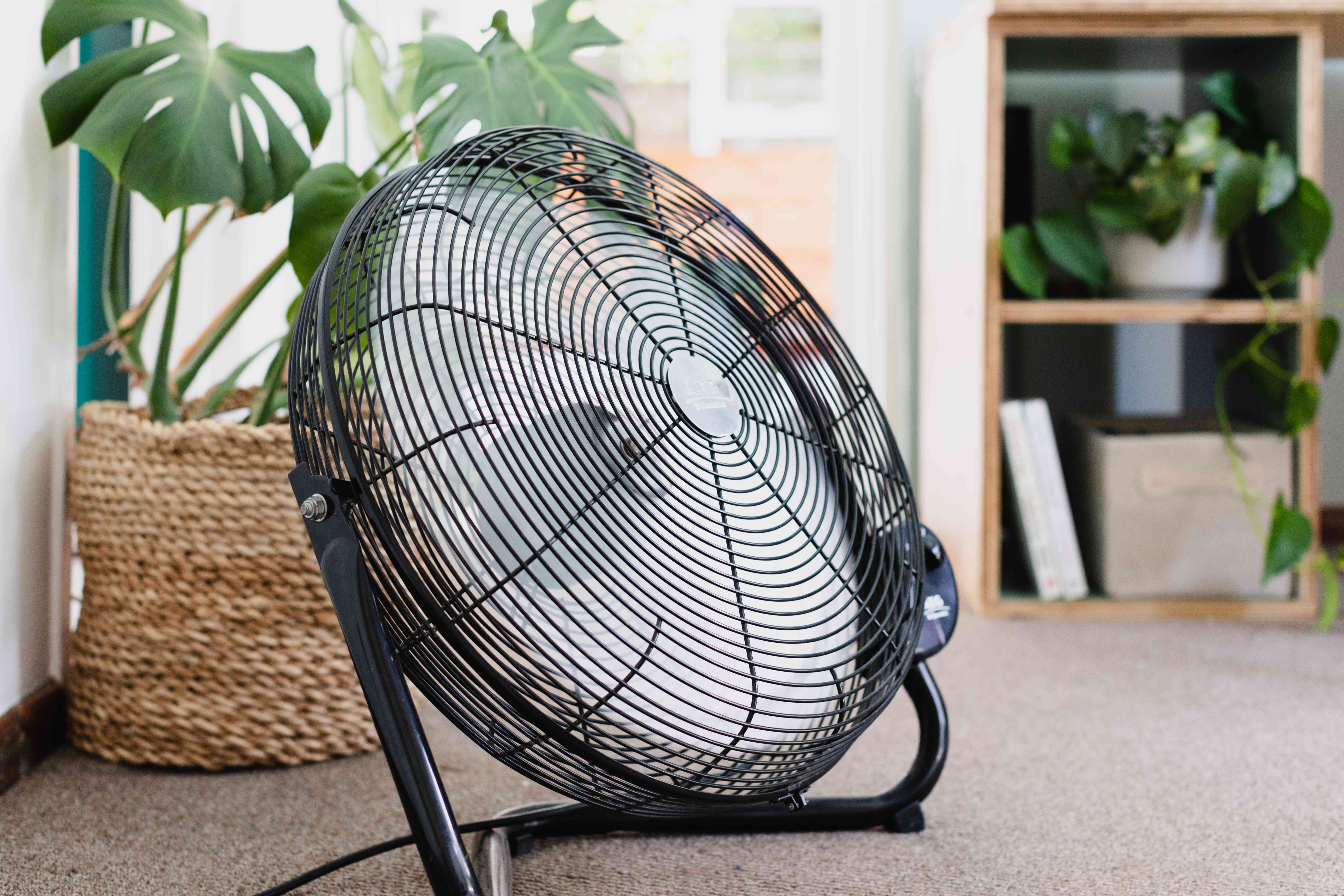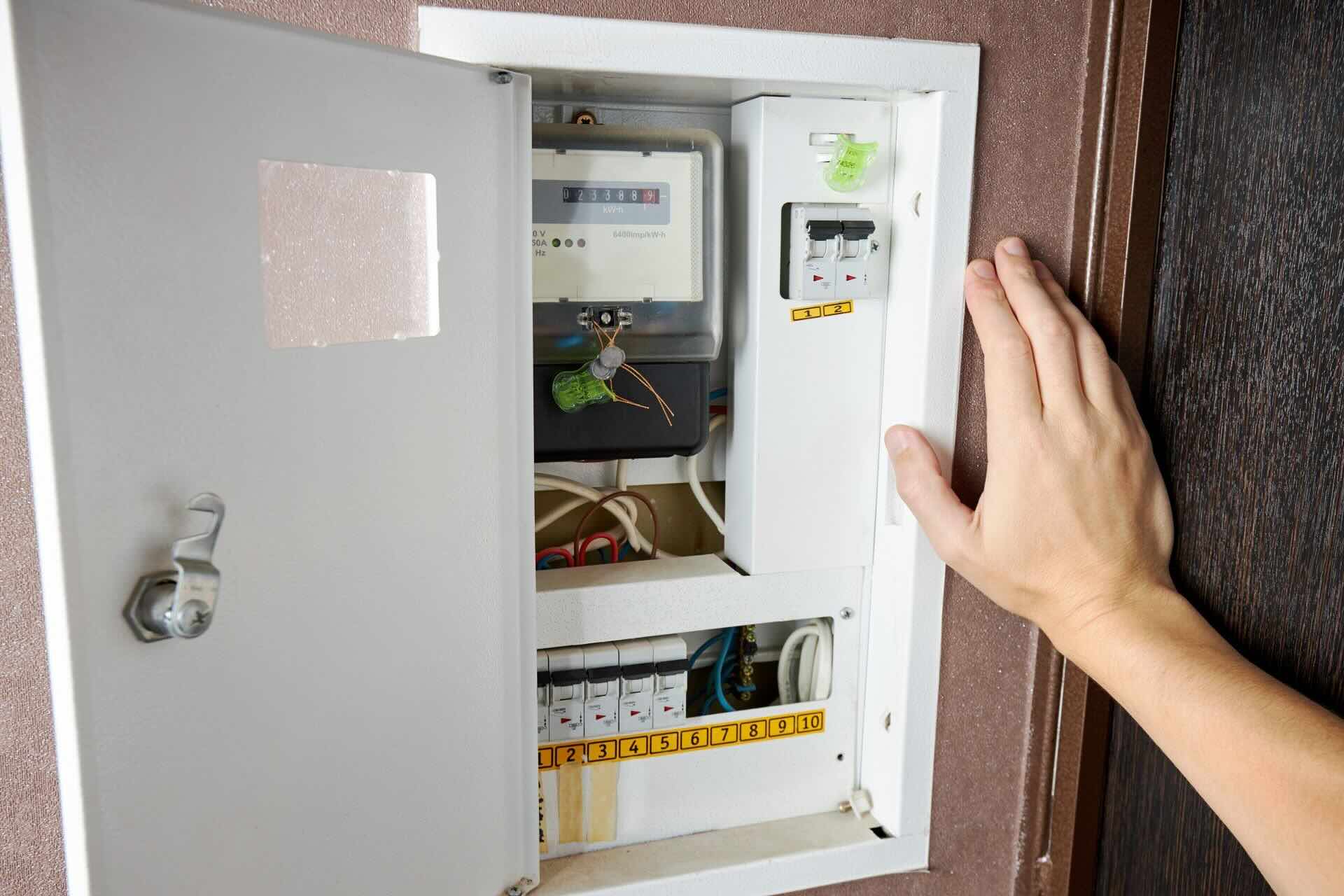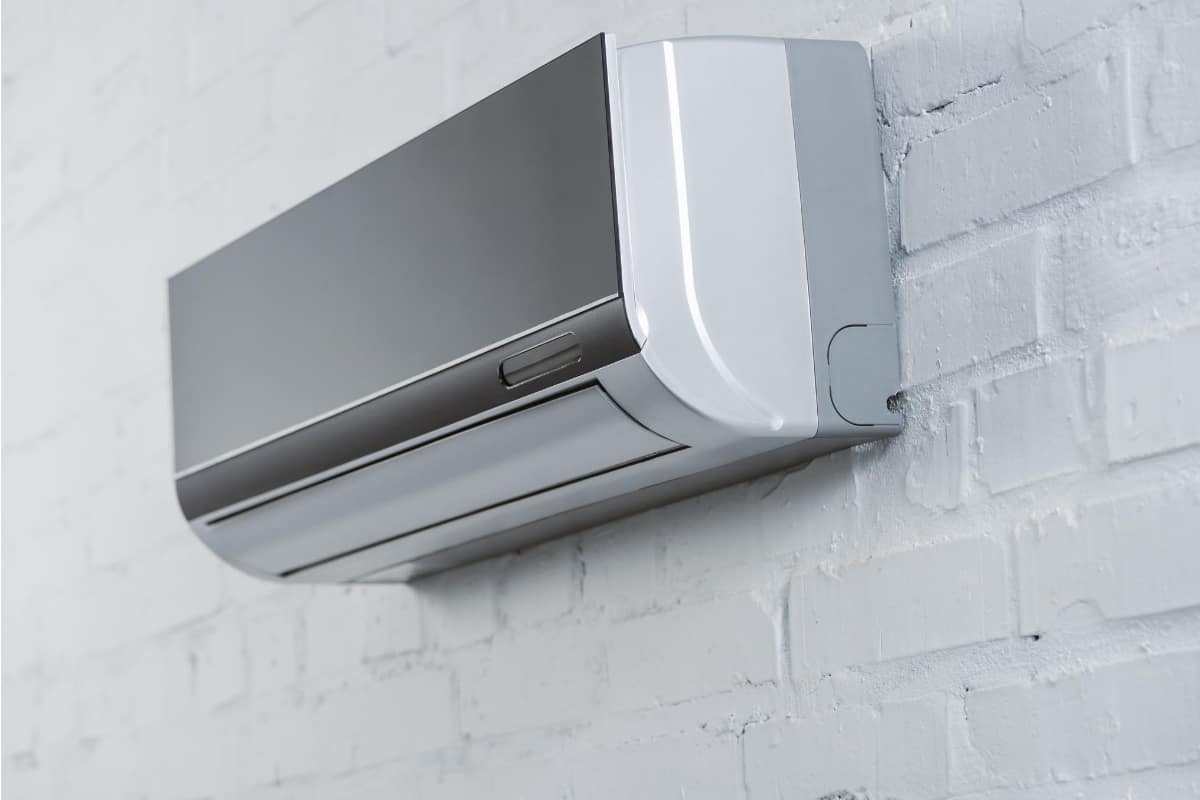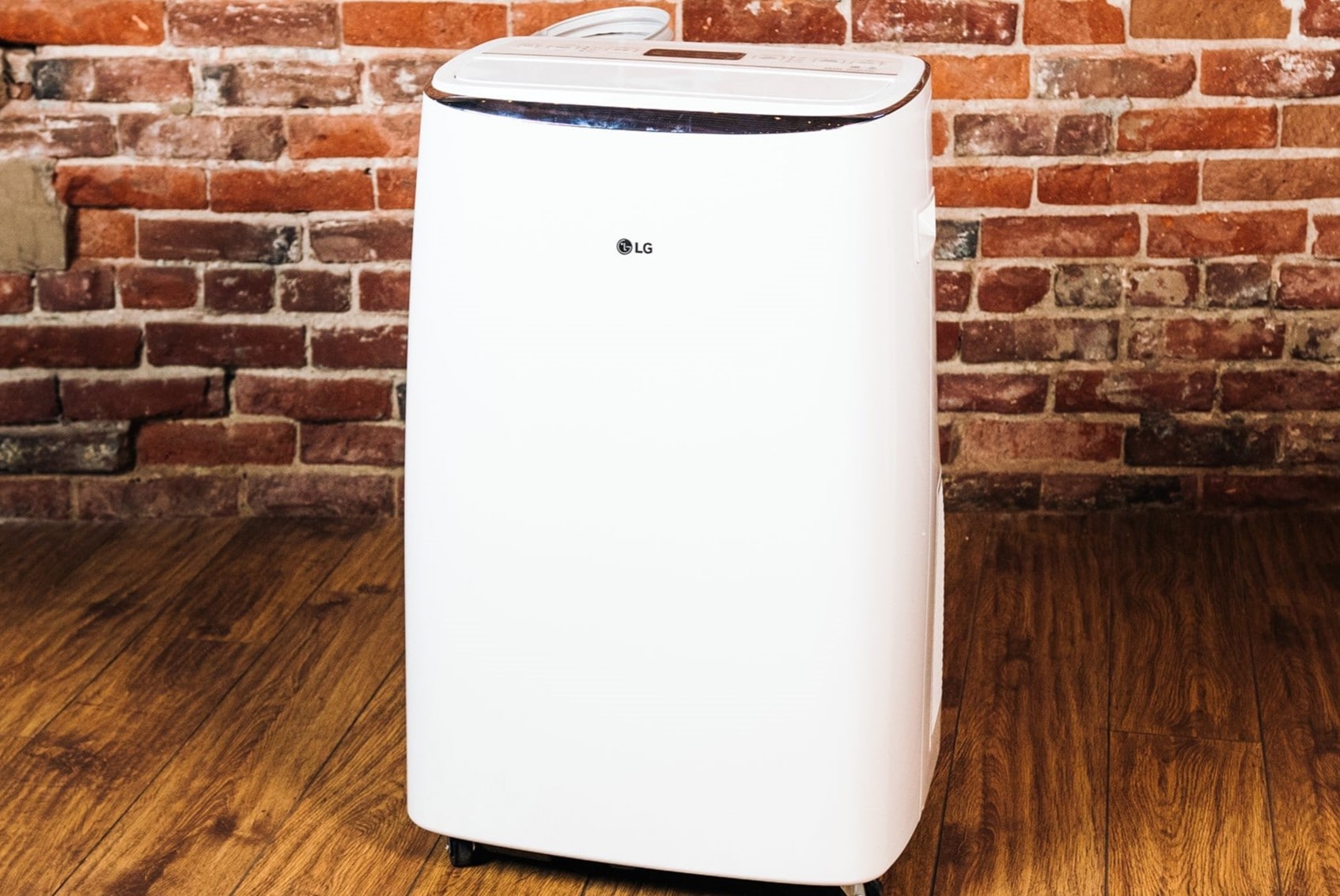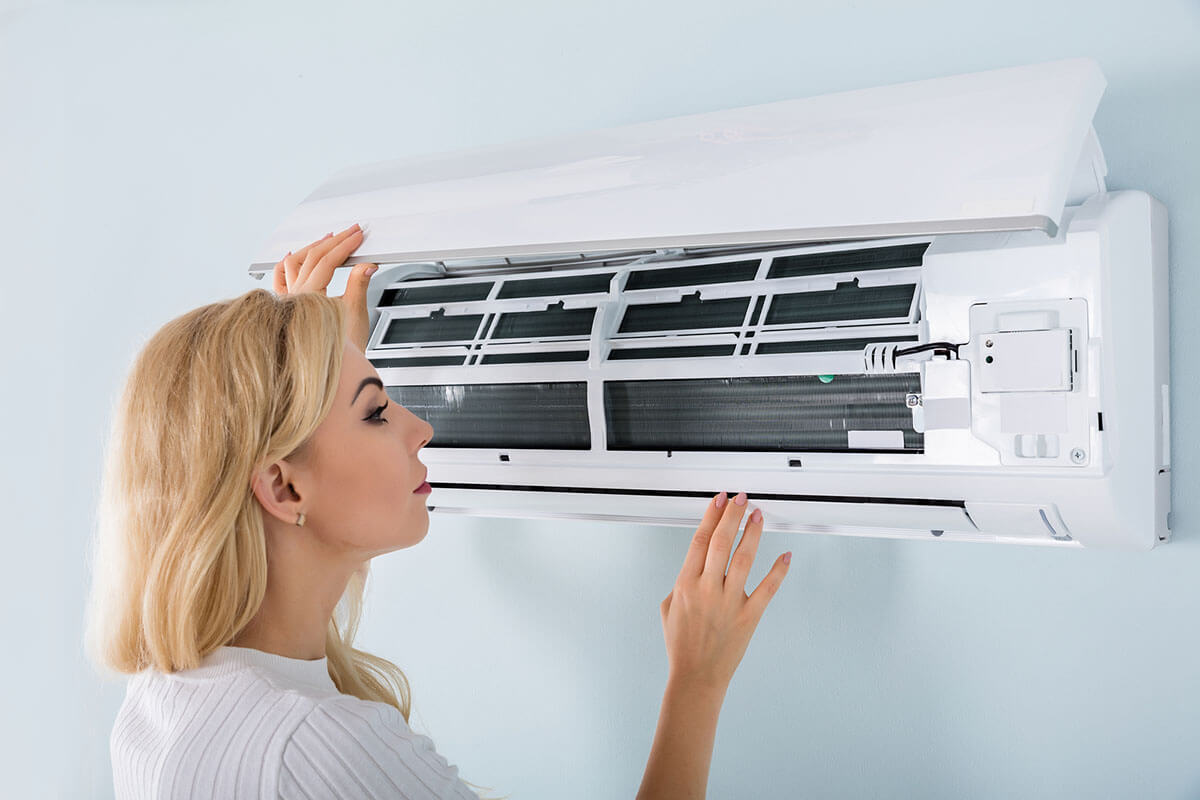Home>Home Maintenance>Why Does My Air Conditioner Keep Blowing Fuses
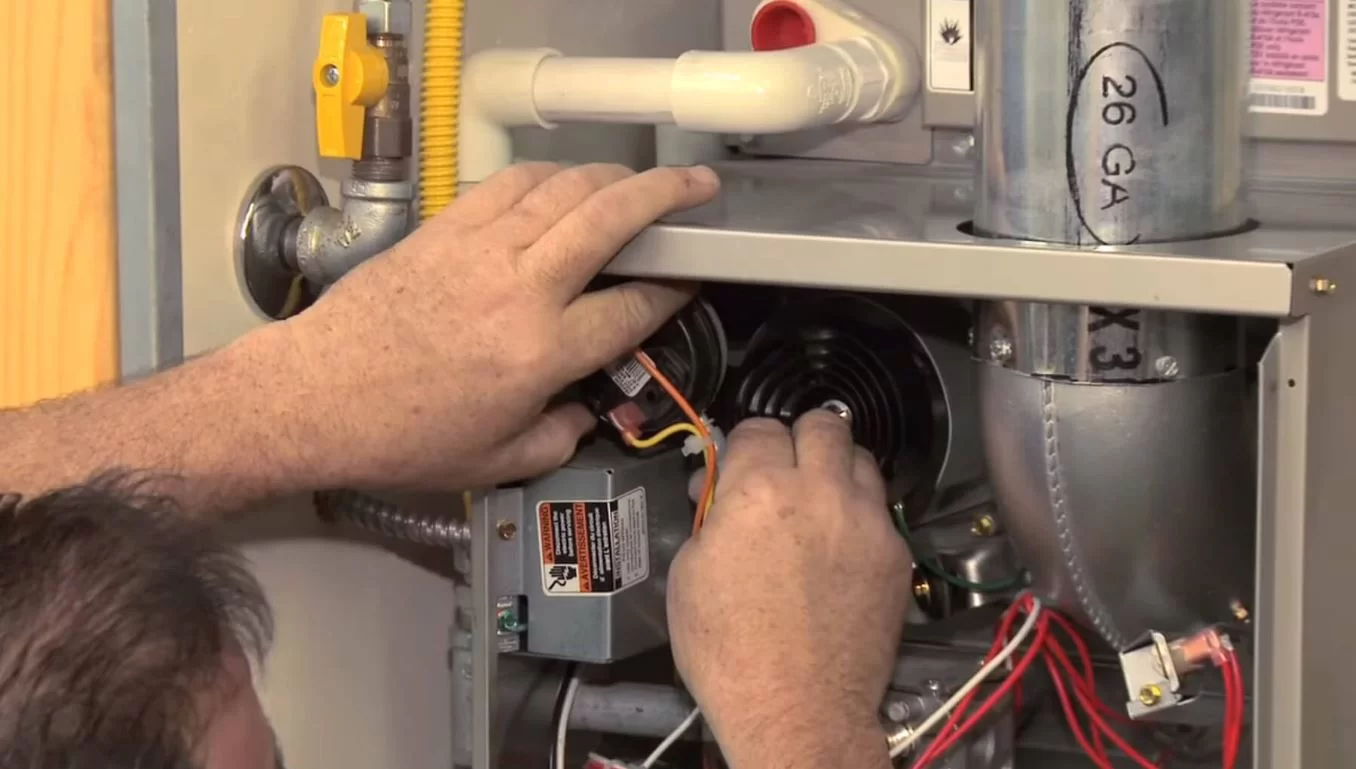

Home Maintenance
Why Does My Air Conditioner Keep Blowing Fuses
Modified: October 20, 2024
Learn why your air conditioner keeps blowing fuses and discover home maintenance strategies to resolve this common issue.
(Many of the links in this article redirect to a specific reviewed product. Your purchase of these products through affiliate links helps to generate commission for Storables.com, at no extra cost. Learn more)
Introduction
Having an air conditioner that constantly blows fuses can be frustrating and inconvenient, especially during hot summer months. When your air conditioner repeatedly trips the fuse, it not only disrupts your comfort, but it also indicates an underlying issue that needs to be addressed promptly.
To understand why your air conditioner keeps blowing fuses, it’s important to have a basic understanding of the function of fuses in an air conditioning system. Fuses act as protection devices, designed to prevent electrical damage and potential fire hazards. They are meant to safeguard the system by interrupting the flow of electricity when a circuit overload or electrical short occurs.
In this article, we will explore the common causes of air conditioner fuse blowing, as well as steps to troubleshoot and fix the issue. Remember that while some troubleshooting steps can be done by homeowners, it is always best to consult a professional technician if you are uncomfortable or unsure about performing any electrical repairs.
Key Takeaways:
- Keep your air conditioner from blowing fuses by checking for electrical shorts, cleaning air filters, and ensuring the correct fuse rating. Regular maintenance can prevent future issues and keep your home cool and comfortable.
- If troubleshooting doesn’t solve the problem, consult a professional technician. They have the expertise and tools to accurately diagnose and fix complex electrical issues in your air conditioning system, ensuring safe and reliable operation.
Read more: Why Is My Air Conditioner Not Blowing Hard
Understanding the Function of Fuses in an Air Conditioner
To understand why your air conditioner may be blowing fuses, it’s important to have a basic understanding of how fuses work in an air conditioning system. Fuses are protective devices that are designed to prevent electrical damage and potential fire hazards.
When electrical current flows through a circuit, the fuse acts as a bridge or a link in that circuit. It is designed to withstand a certain amount of electrical current, known as the “amp rating.” If the current exceeds the amp rating, the fuse will blow, interrupting the flow of electricity and preventing damage to the system.
In an air conditioner, fuses are typically located in the main electrical panel of the unit. There may be individual fuses for different components, such as the compressor or the fan motor. These fuses act as a safety mechanism to protect the components from excessive electrical current, which can cause overheating, burnout, or even electrical fires.
When an air conditioner keeps blowing fuses, it is usually an indication that something is amiss within the system. There could be several reasons why this is happening, including an overload on the circuit, an electrical short circuit, a faulty capacitor or motor, dirty air filters, an improperly sized fuse, or issues with the compressor.
In the next sections, we will dive into each of these causes in more detail, allowing you to identify the root cause of your air conditioner’s fuse blowing problem and take appropriate action to resolve it.
Common Causes of Air Conditioner Fuse Blowing
When your air conditioner keeps blowing fuses, it is essential to identify the underlying cause of the problem. Let’s explore some common reasons why this might be happening:
- Overload on the Circuit: One of the most common causes of fuse blowing is an overload on the circuit. This occurs when the electrical load on the circuit exceeds its capacity. This can happen if you have too many appliances or devices connected to the same circuit as your air conditioner. The excessive electrical demand can cause the fuse to blow to prevent overheating and potential damage to the system.
- Electrical Short Circuit: Another common cause of fuse blowing is an electrical short circuit. This occurs when the hot and neutral wires come into contact, causing a surge of electrical current. A short circuit can be caused by damaged or frayed wires, loose connections, or faulty components within the air conditioning system. When a short circuit occurs, it can cause the fuse to blow as a safety measure.
- Faulty Capacitor or Motor: A faulty capacitor or motor can also contribute to the blowing of fuses. Capacitors and motors play vital roles in the operation of the air conditioner’s compressor and fan. If there is a malfunction or defect in either of these components, it can cause an excessive electrical draw and lead to fuse blowing.
- Dirty Air Filters: Dirty air filters can cause a multitude of problems in an air conditioning system. When the filters are clogged with dirt, dust, and debris, it restricts the airflow and puts a strain on the fan motor. As a result, the motor works harder, drawing more electrical current and potentially causing the fuse to blow.
- Improperly Sized Fuse: Using a fuse with an incorrect amp rating can also lead to fuse blowing. Fuses are designed to handle a specific amount of electrical current. If a fuse with a higher amp rating than necessary is installed, it may not blow when it should, potentially causing damage to the system. On the other hand, using a fuse with a lower amp rating can lead to frequent blowing as it is unable to handle the electrical load.
- Issues with the Compressor: Problems with the air conditioner’s compressor, such as a seized compressor or refrigerant issues, can cause excessive electrical draw and trigger the blowing of fuses. Compressor-related problems often require professional diagnosis and repair.
Understanding these common causes can help you narrow down the issue and take appropriate steps to fix it. However, it’s important to remember that electrical repairs can be dangerous, and it is always best to consult a professional technician for complex issues or if you are unsure about performing any repairs.
Overload on the Circuit
An overload on the circuit is one of the most common causes of an air conditioner blowing fuses. This occurs when the electrical load on the circuit exceeds its capacity, resulting in excessive current flowing through the circuit and causing the fuse to blow as a safety measure.
An overloaded circuit can happen when there are too many appliances or devices connected to the same circuit as your air conditioner. For example, if you have multiple high-power devices plugged into the same outlet, such as a refrigerator, microwave, and air conditioner, the total electrical demand can surpass the circuit’s capacity.
When an overload occurs, it puts a strain on the circuit and can lead to overheating, potentially causing damage to the wiring or appliances. To prevent this, the fuse in the circuit is designed to blow, interrupting the flow of electricity and protecting the system.
To address an overload on the circuit, you can take the following steps:
- Unplug Unnecessary Devices: Identify which devices are connected to the same circuit as your air conditioner and unplug any unnecessary devices. This will reduce the electrical load on the circuit and help alleviate the overload.
- Distribute the Load: If possible, distribute the load by plugging appliances into different circuits or outlets. This ensures that each circuit is not overwhelmed by a high electrical demand.
- Upgrade the Circuit: If you frequently experience overloads, it may be necessary to upgrade the circuit to a higher amp rating. This will increase the circuit’s capacity and allow it to handle a greater electrical load.
It is important to note that electrical work can be dangerous, and it is recommended to consult a qualified electrician to assess the circuit, make any necessary upgrades, or determine the best course of action to prevent future overloads.
By addressing an overload on the circuit, you can reduce the likelihood of your air conditioner blowing fuses and ensure the safe operation of your electrical system.
Electrical Short Circuit
An electrical short circuit is another common cause of an air conditioner blowing fuses. A short circuit occurs when the hot and neutral wires in an electrical circuit come into direct contact with each other, resulting in a sudden surge of electrical current.
Short circuits can be caused by various factors, including damaged or frayed wires, loose connections, or faulty components within the air conditioning system. When a short circuit occurs, it creates a path of least resistance, allowing an excessive amount of electrical current to flow through the circuit.
As a safety measure, fuses are designed to blow when a short circuit occurs. Blowing the fuse interrupts the flow of electricity, preventing damage to the system and reducing the risk of electrical fires.
To troubleshoot and address an electrical short circuit, you can follow these steps:
- Disconnect Power: Before attempting any repairs, ensure that the power to the air conditioning system is turned off at the main electrical panel. This ensures your safety while working on the circuit.
- Inspect for Damaged Wires: Carefully inspect the wiring within the air conditioner for any signs of damage, such as frayed insulation, exposed wires, or burnt spots. If any damaged wires are found, they will need to be repaired or replaced.
- Check for Loose Connections: Tighten any loose electrical connections within the air conditioning system. Loose connections can cause arcing, which can lead to a short circuit. Ensure that all wires are securely connected and that there is no excessive heat or signs of burning at the connection points.
- Test Components: Test the components within the air conditioner, such as the compressor, fan motor, and control board, for any signs of malfunction. Faulty components can cause short circuits and will need to be replaced.
- Consult a Professional: If you are unsure about performing electrical repairs or if the short circuit persists, it is recommended to consult a professional technician. They have the expertise and tools to diagnose and fix electrical issues safely.
Addressing an electrical short circuit is crucial as it not only prevents fuse blowing but also ensures the safety and proper functioning of your air conditioning system. Always prioritize safety and consider seeking professional help when dealing with electrical repairs.
Read more: Why Does My Car Air Conditioner Blow Hot Air
Faulty Capacitor or Motor
A faulty capacitor or motor can contribute to an air conditioner blowing fuses. Capacitors and motors play vital roles in the operation of the air conditioning system, specifically the compressor and fan.
A capacitor stores and releases electrical energy to provide a boost to the motor when it starts. If the capacitor is faulty or malfunctioning, it may draw excessive electrical current, leading to fuse blowing. Similarly, a faulty motor can also cause increased electrical draw, causing the fuse to blow as a safety measure.
To troubleshoot and address a faulty capacitor or motor issue, follow these steps:
- Disconnect Power: Ensure that the power to the air conditioning system is turned off at the main electrical panel before attempting any repairs.
- Inspect the Capacitor: Carefully examine the capacitor for any visible signs of damage, such as bulging, leaking, or a burnt smell. These are indicators of a faulty capacitor that needs to be replaced.
- Test the Capacitor: Use a multimeter to test the capacitance and voltage of the capacitor. Compare the readings with the manufacturer’s specifications to determine if the capacitor is within the acceptable range. If it falls outside the specified range, it is likely faulty and requires replacement.
- Check the Motor: Inspect the motor for any signs of damage, such as overheating, excessive noise, or a burning smell. These can be indications of a faulty motor that needs to be repaired or replaced.
- Consult a Professional: If you are unsure about performing capacitor or motor repairs, it is best to consult a professional technician. They have the knowledge and expertise to accurately diagnose and fix issues with these components.
Addressing faulty capacitors or motors is crucial to prevent fuse blowing and maintain the proper functioning of your air conditioning system. Regular maintenance and inspections can help identify potential issues before they cause major problems.
Keep in mind that working with electrical components can be dangerous if you aren’t familiar with proper safety procedures. It is always recommended to seek professional assistance if you are uncertain or uncomfortable performing electrical repairs.
Dirty Air Filters
Dirty air filters can be a surprising culprit behind an air conditioner constantly blowing fuses. Air filters play a vital role in maintaining the quality of indoor air and the efficiency of the cooling system. When the air filters become clogged with dirt, dust, and debris, it restricts the airflow, causing the system to work harder to maintain the desired temperature.
When the system works harder, it draws more electrical current, increasing the load on the circuit. This increased load can lead to the blowing of fuses, as the system exceeds its normal operating limits.
To address dirty air filters and prevent fuse blowing, follow these steps:
- Turn off the Power: Before inspecting or replacing air filters, turn off the power to the air conditioning system to ensure your safety.
- Locate the Air Filters: Identify where the air filters are located in your air conditioning system. Common locations include the return air vents or in the air handler unit.
- Inspect the Filters: Remove the air filters and inspect them for dirt, dust, and debris. If the filters appear dirty or clogged, they need to be cleaned or replaced.
- Clean or Replace the Filters: If the filters are washable, clean them according to the manufacturer’s instructions. If they are disposable, replace them with new filters. It is recommended to clean or replace air filters every 1-3 months, depending on usage and environmental factors.
- Maintain Regular Filter Maintenance: Establish a routine for regularly cleaning or replacing air filters to ensure optimal performance and prevent the accumulation of dirt and debris.
By regularly cleaning or replacing air filters, you can improve air quality, increase energy efficiency, and reduce the likelihood of fuses blowing. Additionally, cleaner filters contribute to the longevity of the air conditioning system by preventing dirt and debris from entering key components, such as the fan motor and evaporator coil.
Remember to always follow proper safety procedures when working with electrical systems. If you are unsure about cleaning or replacing air filters or if the fuse blowing issue persists, it’s best to consult a professional technician for assistance.
Improperly Sized Fuse
The size of the fuse in an air conditioning system is crucial for protecting the electrical components and preventing fuse blowing. Fuses are designed to handle a specific amount of electrical current, known as the amp rating. If the fuse is improperly sized, it can result in frequent blowing or failure to blow when needed.
Using a fuse with a higher amp rating than necessary can cause the system to tolerate excessive electrical current, potentially leading to damage or overheating. On the other hand, using a fuse with a lower amp rating than required may cause it to blow frequently, as it cannot handle the electrical load of the system.
To ensure you have the properly sized fuse for your air conditioning system, follow these steps:
- Refer to the Manufacturer’s Specifications: Check the air conditioning unit’s manual or consult the manufacturer’s specifications to determine the correct amp rating for the fuse.
- Inspect the Existing Fuse: Remove the existing fuse and check its markings for the amp rating. Make sure it matches the recommended rating specified by the manufacturer.
- Replace the Fuse: If the existing fuse is incorrectly sized, replace it with a fuse that matches the manufacturer’s recommended amp rating. It is important to use the correct type and size of fuse to ensure proper protection and prevent electrical issues.
- Consult a Professional: If you are unsure about choosing the right fuse or if the fuse blowing issue persists, consult a professional technician. They can accurately assess your system’s electrical requirements and install the appropriate fuse.
It is vital to use the correct fuse size to ensure the safe and efficient operation of your air conditioning system. Using an improperly sized fuse can lead to electrical problems, potentially causing damage to the system or compromising safety.
Always prioritize safety and consult a professional if you have any doubts or concerns regarding fuse sizing or replacement.
Issues with the Compressor
Issues with the air conditioner’s compressor can also be a significant factor in the constant blowing of fuses. The compressor is a crucial component responsible for pumping refrigerant through the system, facilitating the heat exchange process to cool the indoor air.
If the compressor is experiencing problems, it can cause an excessive draw of electrical current, leading to fuse blowing. Some potential issues with the compressor include:
- Seized Compressor: A seized compressor occurs when the internal components of the compressor become stuck or fail to turn, preventing the proper circulation of refrigerant. This can cause the compressor to draw more electrical current, resulting in fuse blowing.
- Refrigerant Issues: Insufficient or improper refrigerant levels can cause the compressor to work harder to maintain the desired cooling effect. This increased workload can result in excessive electrical draw and fuse blowing. It is important to have a professional technician address any refrigerant-related issues.
- Failed Start Capacitor or Relay: The compressor requires a start capacitor or relay to initiate its operation. If these components fail, it can cause the compressor to draw more electrical current, leading to fuses blowing as a precautionary measure.
If you suspect issues with the compressor, it is best to consult a professional technician with expertise in air conditioning systems. They can perform a thorough inspection and diagnostic tests to determine the root cause of the problem.
Addressing compressor-related issues often requires specialized knowledge and tools. Depending on the severity of the problem, repairs may range from component replacement to compressor replacement. Attempting to repair or replace the compressor yourself can be dangerous and may void any warranties on your system.
By addressing and resolving any issues with the compressor, you can prevent fuses from continuously blowing and ensure the proper functioning of your air conditioner.
Check for a short circuit in the wiring or a faulty capacitor. Also, make sure the fuse is the correct size for your AC unit. If the problem persists, call a professional.
How to Troubleshoot and Fix the Fuse Blowing Problem
If your air conditioner keeps blowing fuses, it’s important to troubleshoot and fix the issue to ensure the reliable and safe operation of your cooling system. Below are steps you can take to identify and resolve the problem:
- Step 1: Verify the Correct Fuse Rating: Check that the fuse installed in your air conditioning system matches the manufacturer’s recommended amp rating. Using an improperly sized fuse can contribute to frequent blowing or system damage. Replace the fuse if necessary.
- Step 2: Check for Electrical Shorts: Inspect the wiring within the air conditioner for any signs of damage, frayed insulation, or loose connections. An electrical short circuit can cause the fuse to blow. Repair or replace any damaged wires and tighten loose connections.
- Step 3: Inspect and Clean the Air Filters: Dirty air filters can cause the system to work harder and draw more electrical current, resulting in fuse blowing. Remove and inspect the air filters, cleaning or replacing them as needed.
- Step 4: Test the Capacitor and Motor: Check the capacitor and motor for any signs of malfunction. Faulty capacitors or motors can contribute to excessive electrical draw and fuse blowing. Use a multimeter to test their capacitance and voltage, replacing any components that are out of specifications.
- Step 5: Examine the Compressor: Inspect the compressor for any issues such as a seized compressor or refrigerant-related problems. Address any compressor issues promptly to prevent excessive electrical draw and fuse blowing. Consult a professional technician for compressor-related repairs.
- Step 6: Consult a Professional Technician if Needed: If the fuse blowing issue persists or if you are uncomfortable performing any electrical repairs, it is best to consult a professional technician. They have the knowledge, experience, and tools to accurately diagnose and address complex electrical issues.
Remember, working with electrical systems can be dangerous, so always prioritize your safety. If you are unsure about any repair steps or if the problem persists after troubleshooting, it is recommended to consult a qualified HVAC technician.
By diligently troubleshooting and addressing the underlying causes of fuse blowing, you can restore the optimal functionality of your air conditioning system and enjoy a comfortable and reliable cooling experience.
Step 1: Verify the Correct Fuse Rating
When troubleshooting a fuse blowing problem in your air conditioning system, it is essential to start by verifying that the correct fuse rating is installed. Using an improperly sized fuse can lead to frequent fuse blowing or even cause damage to the system.
The fuse rating refers to the amount of electrical current that the fuse can handle. It is crucial to match the fuse rating with the manufacturer’s recommended amp rating for your specific air conditioning unit. This information can typically be found in the unit’s manual or on a label attached to the system.
To verify the correct fuse rating, follow these steps:
- Turn off the Power: Before inspecting or replacing the fuse, ensure that the power to the air conditioning system is turned off at the main electrical panel.
- Locate the Fuse: Identify where the fuse is located within the air conditioning system. Typically, the fuse will be found in the main electrical panel of the unit.
- Remove the Fuse: Carefully remove the fuse from its housing. Take note of any markings or labels on the fuse for reference during the inspection process.
- Check the Fuse Rating: Examine the markings on the fuse to determine its amp rating. Compare this rating with the manufacturer’s recommended amp rating for your air conditioning unit.
- Replace if Necessary: If the fuse rating does not match the manufacturer’s recommended rating, it is important to replace the fuse with one that does. Make sure to select a fuse with the correct amp rating to ensure proper protection and prevent electrical issues.
By ensuring that the correct fuse rating is installed in your air conditioning system, you can prevent excessive electrical current flow and reduce the occurrence of fuse blowing. It is vital to use the appropriate fuse size to maintain the safe and efficient operation of your system.
If you are unsure about choosing the right fuse or if the fuse blowing issue persists after verifying the correct fuse rating, it is recommended to consult a professional technician. They can accurately assess your system’s electrical requirements and provide appropriate guidance and solutions.
Step 2: Check for Electrical Shorts
Electrical shorts can be a common cause of fuse blowing in air conditioning systems. An electrical short circuit occurs when the hot and neutral wires come into direct contact with each other, causing a surge of electrical current. Checking for electrical shorts is an important step in troubleshooting and fixing the fuse blowing problem.
Follow these steps to check for electrical shorts:
- Turn off the Power: Before beginning any inspection or repair work, turn off the power to the air conditioning system at the main electrical panel. This precaution ensures your safety while working with electrical components.
- Inspect the Wiring: Carefully examine the wiring within the air conditioning system for any signs of damage, such as frayed insulation, exposed wires, or loose connections. Pay close attention to areas where wires may come into contact with sharp edges or moving parts.
- Repair or Replace Damaged Wires: If you identify any damaged wires, it is important to repair or replace them promptly. Cut out the damaged section of the wire and use electrical tape or wire connectors to join the ends securely. Ensure that all connections are tight and properly insulated.
- Tighten Loose Connections: Check for any loose electrical connections within the air conditioner. Loose connections can cause arcing, which can lead to a short circuit. Use a screwdriver or pliers to tighten any loose terminal screws or connector terminals.
- Check for Grounding Issues: Ensure that the air conditioning system is properly grounded. A lack of proper grounding can increase the risk of electrical shorts. Consult the unit’s manual or a professional technician to verify and address any grounding issues.
It is important to note that working with electrical components can be dangerous if you are not familiar with proper safety procedures. If you are uncertain or uncomfortable performing electrical repairs, it is best to consult a professional technician. They have the expertise to accurately diagnose and fix electrical issues safely.
By checking for electrical shorts and addressing any damaged wiring or loose connections, you can prevent fuse blowing and promote the safe and efficient operation of your air conditioning system.
Step 3: Inspect and Clean the Air Filters
Dirty air filters can contribute to an air conditioner blowing fuses. When the air filters become clogged with dirt, dust, and debris, it restricts the airflow and puts extra strain on the system’s components, including the fan motor, which can lead to an increased electrical draw and the blowing of fuses.
Follow these steps to inspect and clean the air filters:
- Turn off the Power: Before inspecting or cleaning the air filters, ensure that the power to the air conditioning system is turned off at the main electrical panel. This step ensures your safety during the maintenance process.
- Locate the Air Filters: Identify the location of the air filters in your air conditioning system. They are typically found in the return air vents or within the air handler unit.
- Remove the Air Filters: Carefully remove the air filters from their housing. Pay attention to the direction in which they were installed, as it’s important to reinstall them correctly.
- Inspect the Air Filters: Examine the air filters for any signs of dirt, dust, or debris. If the filters appear visibly dirty or clogged, they need to be cleaned or replaced.
- Clean or Replace the Air Filters: If the air filters are washable, clean them according to the manufacturer’s instructions. This typically involves rinsing them with water and allowing them to dry thoroughly before reinstalling. If the filters are disposable, replace them with new filters.
- Maintain Regular Filter Maintenance: Establish a routine for regular filter cleaning or replacement. Depending on usage and the environmental conditions, it is generally recommended to clean or replace air filters every 1-3 months.
By inspecting and cleaning the air filters regularly, you ensure proper airflow and reduce strain on the system. This helps to prevent the blowing of fuses and allows the air conditioner to operate more efficiently. Additionally, clean filters contribute to better indoor air quality by trapping dust and allergens.
Remember to follow the manufacturer’s instructions and safety precautions when cleaning or replacing the air filters. If you are unsure about the process or if the fuse blowing issue persists after maintenance, it is best to consult a professional technician for guidance and assistance.
Step 4: Test the Capacitor and Motor
The capacitor and motor in an air conditioning system play vital roles in the operation of the compressor and fan. A faulty capacitor or motor can contribute to excessive electrical draw and result in the blowing of fuses. Testing these components can help identify any issues and allow you to take appropriate action.
Follow these steps to test the capacitor and motor:
- Turn off the Power: Before performing any tests or inspections, ensure that the power to the air conditioning system is turned off at the main electrical panel. Safety should always be a priority when working with electrical components.
- Locate the Capacitor: Identify the location of the capacitor within the air conditioning system. It is typically found near the motor or the compressor.
- Test the Capacitor: Use a multimeter set to the capacitance function to test the capacitor. Follow the manufacturer’s instructions and compare the readings with the specifications provided. If the readings fall outside the acceptable range, the capacitor may be faulty and require replacement.
- Locate the Motor: Identify the location of the motor within the air conditioning system. There are typically separate motors for the compressor and the fan.
- Inspect the Motor: Visually inspect the motor for any visible signs of damage, such as overheating, excessive noise, or a burning smell. These can indicate a faulty motor that needs to be repaired or replaced.
- Test the Motor: Use a multimeter set to the resistance or continuity function to test the motor windings. Follow the manufacturer’s instructions and compare the readings with the specifications provided. If the readings are outside the recommended range or if there is no continuity, the motor may be faulty and require professional repair or replacement.
It is important to note that capacitors store electrical energy and can discharge even when the power is turned off. Exercise caution and avoid touching the terminals or contacts of the capacitor.
If you are unsure about performing tests on the capacitor or motor, or if the fuse blowing issue persists after testing, it is best to consult a professional technician. They have the expertise and specialized tools to accurately diagnose and address issues with these components.
By testing the capacitor and motor, you can pinpoint any malfunctions and address them promptly, reducing the risk of fuse blowing and ensuring the optimal performance of your air conditioning system.
Step 5: Examine the Compressor
The compressor is a crucial component of an air conditioning system, responsible for pumping refrigerant and facilitating the heat exchange process. Issues with the compressor can lead to excessive electrical draw and cause the blowing of fuses. Examining the compressor can help identify any problems and guide you in taking the necessary steps for repair or maintenance.
Follow these steps to examine the compressor:
- Turn off the Power: Before examining the compressor, ensure that the power to the air conditioning system is turned off at the main electrical panel. This ensures your safety while working with the system.
- Locate the Compressor: Identify the location of the compressor within the air conditioning system. It is typically found in the outdoor unit, enclosed within a metal housing.
- Inspect for Exterior Damage: Visually inspect the exterior of the compressor for any signs of damage, such as dents, cracks, or leaks. Damage to the compressor can affect its performance and contribute to fuse blowing.
- Check for Refrigerant Issues: Ensure that the refrigerant levels in the air conditioning system are sufficient. Low refrigerant levels can cause the compressor to work harder, leading to increased electrical draw and fuse blowing. Consult a professional technician for refrigerant-related inspections, as handling refrigerant requires specialized knowledge and equipment.
- Verify Proper Operation: Observe the compressor during the system’s operation. Note any unusual noises, excessive vibrations, or irregular heating or cooling patterns. These can be indicators of compressor issues.
- Consult a Professional: If you suspect a problem with the compressor or are unsure about any observations you have made, it is best to consult a professional technician. They have the expertise and tools necessary to perform a comprehensive examination and provide appropriate recommendations for repair or maintenance.
Keep in mind that the compressor is a complex component, and addressing issues with it often requires professional assistance. Attempting to repair or maintain the compressor without the proper knowledge and tools can be dangerous and may void any warranties on your system.
By examining the compressor and addressing any identified issues, you can ensure its proper functioning, which reduces the risk of fuse blowing and promotes the efficient cooling performance of your air conditioning system.
Step 6: Consult a Professional Technician if Needed
If you have followed the troubleshooting steps and the air conditioner continues to blow fuses, or if you are unsure about performing any electrical repairs, it is strongly recommended to consult a professional technician. They have the knowledge, experience, and specialized tools to accurately diagnose and address complex electrical issues in your air conditioning system.
A professional technician can provide the following expertise:
- Detailed Diagnosis: A technician can conduct a thorough inspection of your air conditioning system, including the electrical components, to identify the root cause of the fuse blowing problem. They have the expertise to assess the system comprehensively and pinpoint any issues.
- Safe Repairs: Electrical repairs can be hazardous if not performed properly. Technicians are trained to adhere to safety protocols and can carry out repairs and replacements in a safe and reliable manner, minimizing the risk of accidents or further damage.
- Access to Tools and Parts: Professional technicians have access to a wide range of specialized tools and high-quality replacement parts. This ensures that any repairs or replacements are done using appropriate equipment and quality components, resulting in reliable and long-lasting solutions.
- Expertise in System Integration: Air conditioning systems are complex, interconnected systems. Technicians understand how various components and subsystems work together and can identify any underlying issues that may be contributing to the fuse blowing problem.
- Preventive Maintenance: In addition to addressing the immediate issue, technicians can provide recommendations for preventive maintenance to avoid future problems. Regular professional maintenance can help keep your air conditioning system in optimal condition and minimize the risk of fuse blowing or other issues.
Consulting a professional technician not only ensures the proper resolution of the fuse blowing problem but also provides peace of mind. They can accurately diagnose the issue and provide appropriate solutions, saving you time, effort, and potentially costly repairs in the long run.
Remember, safety should always be a priority when dealing with electrical components. If you are unsure about any repairs, or if the issue persists after troubleshooting, do not hesitate to seek the assistance of a qualified professional technician.
Conclusion
Dealing with an air conditioner that keeps blowing fuses can be frustrating and inconvenient. However, understanding the common causes and following the appropriate troubleshooting steps can help you resolve the issue and restore the reliable and efficient operation of your cooling system.
Throughout this article, we have discussed some of the most common causes of air conditioner fuse blowing, including overload on the circuit, electrical short circuits, faulty capacitors or motors, dirty air filters, improperly sized fuses, and issues with the compressor. By identifying these causes, you can take targeted steps to address the underlying problems.
From verifying the correct fuse rating and checking for electrical shorts to inspecting and cleaning the air filters, testing the capacitor and motor, examining the compressor, and consulting a professional technician if needed, each troubleshooting step plays a crucial role in identifying and resolving the fuse blowing problem.
It is important to prioritize safety when working with electrical components and to seek professional assistance if you are unsure or uncomfortable with performing any repairs. Professional technicians have the expertise and specialized tools to accurately diagnose and address complex electrical issues in your air conditioning system.
By following the troubleshooting steps outlined in this article and taking appropriate action, you can prevent frequent fuse blowing, ensure the proper functioning of your air conditioner, and enjoy a comfortable and reliable cooling experience.
Remember, regular maintenance and proper care of your air conditioning system are essential in preventing future issues. Consider scheduling regular professional maintenance to keep your system running smoothly and to detect any potential problems before they escalate.
Stay proactive, stay cool, and maintain the optimal functioning of your air conditioner to enjoy a comfortable and refreshing indoor environment all year round.
Frequently Asked Questions about Why Does My Air Conditioner Keep Blowing Fuses
Was this page helpful?
At Storables.com, we guarantee accurate and reliable information. Our content, validated by Expert Board Contributors, is crafted following stringent Editorial Policies. We're committed to providing you with well-researched, expert-backed insights for all your informational needs.
